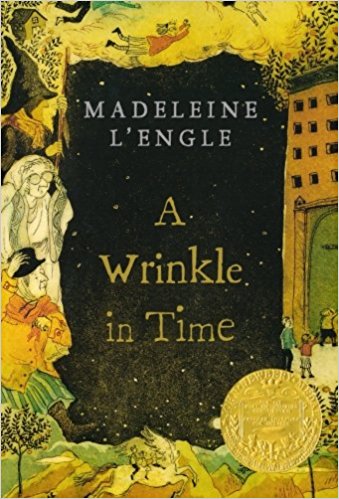A once-larval academic spreads her new wings:
Anthropologists are known for their attentiveness to social inequality, but few have acknowledged the plight of their [adjunct] peers. When I expressed doubt about the job market to one colleague, she advised me, with total seriousness, to “re-evaluate what work means” and to consider “post-work imaginaries”* …
In May 2012, I received my PhD, but I still do not know what to do with it. I struggle with the closed off nature of academic work, which I think should be accessible to everyone, but most of all I struggle with the limited opportunities in academia for Americans like me, people for whom education was once a path out of poverty, and not a way into it.
Every time I read a first-world problem story like this, I just want to ask the person writing, “How many anthropologists are there in America, and how many anthropologists are necessary to do all the anthropology that Americans need done?” I suspect that they have no idea that the question might be important,** holding instead to the adorable idea that jobs appear magically whenever people are qualified to hold them.
 But the idea that the “limited opportunities in academia” is a problem of too few well-paid, unionized, tenurized teaching positions rather than a problem of too many PhDs seeking them, is ludicrous. Now that everyone has a PhD, the PhD is worthless. It’s a simple matter of supply and demand.
But the idea that the “limited opportunities in academia” is a problem of too few well-paid, unionized, tenurized teaching positions rather than a problem of too many PhDs seeking them, is ludicrous. Now that everyone has a PhD, the PhD is worthless. It’s a simple matter of supply and demand.
1950 was the first year that more than 5,000 PhDs were granted in the United States. Every year since 1970, more than 30,000 have been granted. Since 1990, more than 40,000. How many new colleges must open to employ 40,000 new anthropology, art history, and religious studies professors every year?
But supply and demand aside, it’s also a matter of most PhD degrees being intrinsically worthless. Sure, we don’t need 40,000 new college professors every year, but the question is, do the ones we have even need a PhD? Well, of course, right? We need PhDs to teach classes and make more PhDs.
Actually, we don’t. In fact, the truth is that we don’t need PhDs to teach post grad-level classes because post grad students ought to be teaching themselves. We don’t need them for lower level classes because adjuncts can do the job just fine – besides, what the students need to pass the course is usually in the book. We may need some for upper-level classes where the transition from power-point copier to actual researcher is taking place.
But since upper level classes are often not even in the PhD’s area of recognized expertise***, the PhD seldom holds any more knowledge on the subject than someone with a masters.**** There remains little reason why the class cannot be taught by someone with a master’s degree. PhDs are awesome for research, I suppose, but that hardly makes a good argument for more professorships: professors are supposed to be teaching.
There is a problem with the “education is a path out of poverty” mindset, and our author comes oh-so-close to finding it. So close, in fact, that it’s obvious one must hold a PhD in a worthless subject like anthropology to miss it. Education is a path out of poverty, but only because work is a path out of poverty. Education can make your work, and the products of your work, more valuable. But they only do so if the skills and knowledge you have are worth money to someone else in the first place.
Zero times any number is zero: if your education-enhanced work offers nothing to those who can pay your path out of poverty, then what possible reason could education, by itself, be a path out of poverty?
But never fear: if you choose to spend money you don’t have to get an education that no one but you finds valuable, the result is a lesson in itself. So long as one is not too educated to learn it, of course.
* I have a very difficult time working up any sympathy for the work prospects of the kinds of people who would use the phrase “post-work imaginaries” in a sentence. After all, they are already drawing paycheck imaginaries for that.
** I have no idea how many, obviously. But if I was going to drop six figures to become one, you can bet your ampersand I’d find out. Maybe as a thesis for my master’s in anthropology.
*** My History of the South professor’s PhD dissertation was on the effects of the 1919 Spanish Lady Flu among populations in northern Wisconsin. She’s a great professor, but not because of her PhD.
**** Any significant real-world difference in knowledge of a PhD vis-a-vis an MA is more likely a result of time spent individually studying and teaching, rather than the extra 24-30 hours of class time a PhD holds. I would rather learn at the feet of a 60-year-old MA than a 27-year-old PhD.










She is either too smart or not smart enough to produce something like:
https://nypost.com/2019/10/14/spongebob-squarepants-is-violent-racist-whitewashes-us-history-prof/
Sponge Bob and Square Pants are really bad!. Tim Pool tried covering it but couldn’t stop laughig and kept saying “this must be a hoax…”. No, it is a western washington anthropology professor, and from some of the other publications, it is not like the “mine kampf as feminist deconstruction” or “sexism in dog parks” actual, or maybe I should say intentional, hoax papers.
Not smart enough would be my guess. The clever ones always find a way to make the rules work in their favor.
My not-uniformed view here, based upon much interaction with academics, is that most of them are absolute idiots.
You’re not wrong.
5